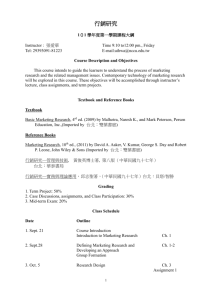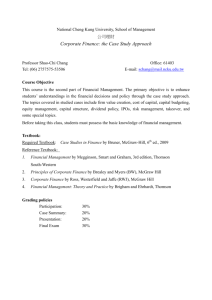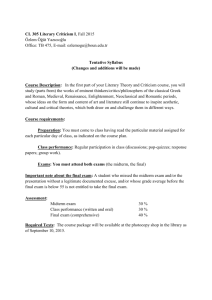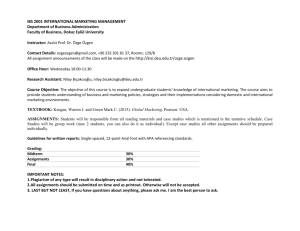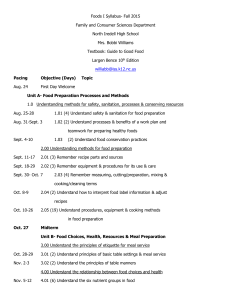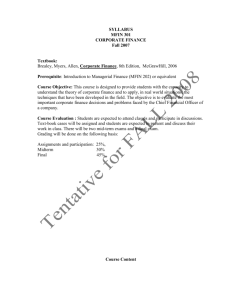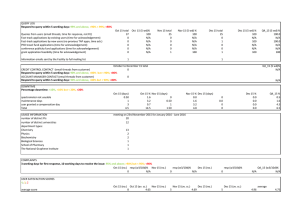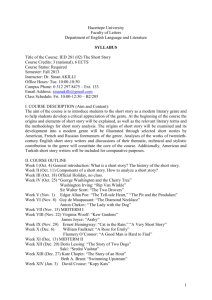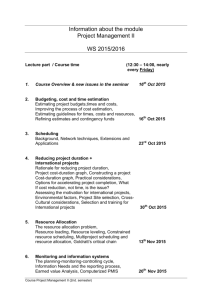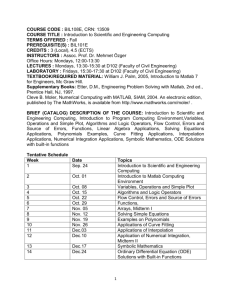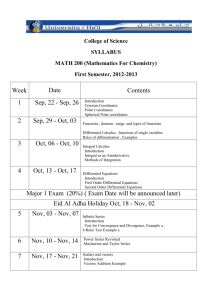cl 305.01 literary criticism i - Department of Western Languages and
advertisement
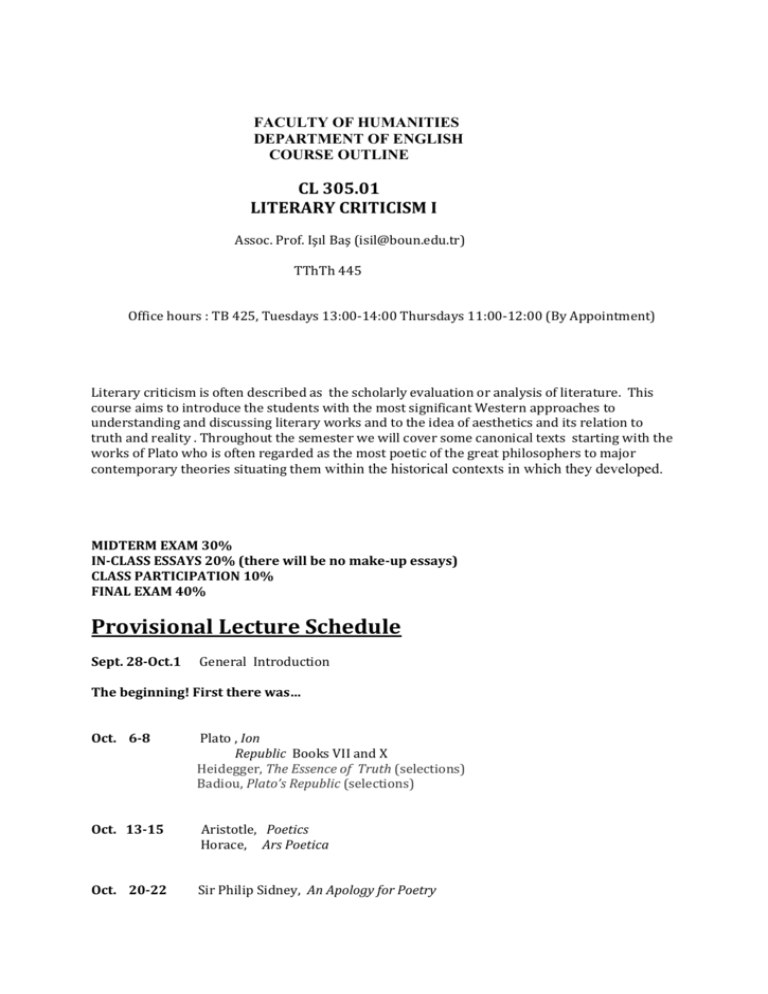
FACULTY OF HUMANITIES DEPARTMENT OF ENGLISH COURSE OUTLINE CL 305.01 LITERARY CRITICISM I Assoc. Prof. Işıl Baş (isil@boun.edu.tr) TThTh 445 Office hours : TB 425, Tuesdays 13:00-14:00 Thursdays 11:00-12:00 (By Appointment) Literary criticism is often described as the scholarly evaluation or analysis of literature. This course aims to introduce the students with the most significant Western approaches to understanding and discussing literary works and to the idea of aesthetics and its relation to truth and reality . Throughout the semester we will cover some canonical texts starting with the works of Plato who is often regarded as the most poetic of the great philosophers to major contemporary theories situating them within the historical contexts in which they developed. MIDTERM EXAM 30% IN-CLASS ESSAYS 20% (there will be no make-up essays) CLASS PARTICIPATION 10% FINAL EXAM 40% Provisional Lecture Schedule Sept. 28-Oct.1 General Introduction The beginning! First there was… Oct. 6-8 Plato , Ion Republic Books VII and X Heidegger, The Essence of Truth (selections) Badiou, Plato’s Republic (selections) Oct. 13-15 Aristotle, Poetics Horace, Ars Poetica Oct. 20-22 Sir Philip Sidney, An Apology for Poetry Samuel Johnson, Preface to Shakespeare Oct. 27-29 Immanuel Kant, Critique of Judgement Michel Foucault, What is Enlightenment “What, then, is truth? A mobile army of metaphors, metonyms, and anthropomorphisms—in short, a sum of human relations which have been enhanced, transposed, and embellished poetically and rhetorically, and which after long use seem firm, canonical, and obligatory to a people: truths are illusions about which one has forgotten that this is what they are; metaphors which are worn out and without sensuous power; coins which have lost their pictures and now matter only as metal, no longer as coins.” F.N Nov. 3-5 Friedrich Nietzsche, On Truth and Lie in an Extra-Moral sense The Birth of Tragedy Nov.10-12 MIDTERM Formalism and New Criticism Nov. 17- 19 Nov. 24-26 T.S. Eliot, Tradition and the Individual Talent Victor Shklovsky, Art as Technique M. Bakhtin, Discourse in the Novel Structuralism & Semiology/Semiotics Dec. 1-3 Dec. 8-10 Ferdinand de Saussure, Course in General Linguistics Roland Barthes Mythologies (selections) Vladimir Propp, Morphology of a Folktale Michael Foucault, The Archaeology Of Knowledge Who makes Meaning? Dec. 15-17 : Dec. 22-24: Stanley Fish, Interpretive Communities Pierre Bourdieu, Distinction Wolfgang Iser, The Reading Process: A Phenomenological Approach. Beth H.. Friedman-Romell, Beth H., Breaking the Code: Toward a Reception Theory of Theatrical Cross-Dressing in Eighteenth-Century London
